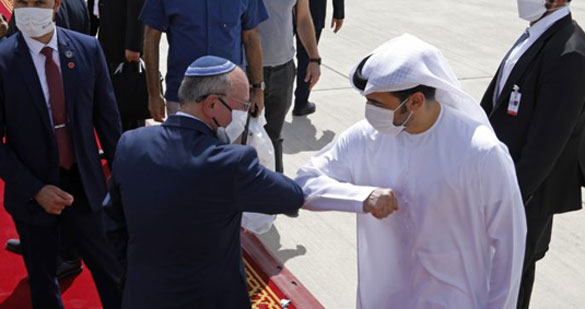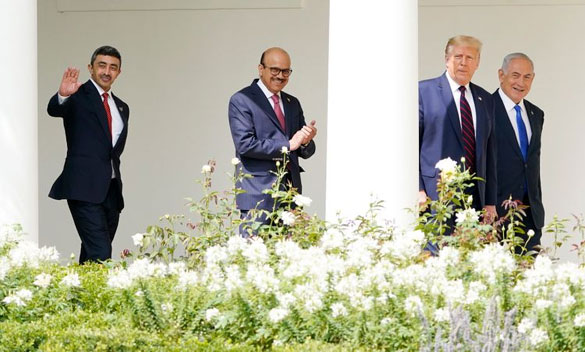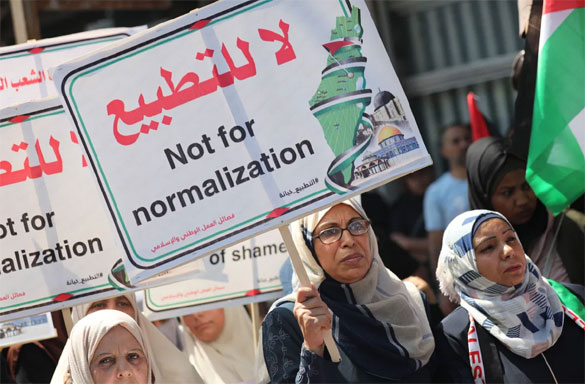
By Arshad Alam, New Age Islam
9 November 2020
Terror in the name of Islam is indeed one of the biggest challenges facing Muslim communities across the world. One beheading becomes the occasion for polarised and acerbic debates about the relation of Islam with democracy, multiculturalism and secularism. Reams get written about how the current scourge of terrorism is the product of Islamic theology. On the other hand, there are others who want to contextualise this phenomenon as the natives striking back at their former masters. While the world debates the ‘real’ causes behind Islamic terrorism, it is also important to underline that there are certain important changes taking place across the Muslim world. However, these changes are hardly debated in the spirit in which they should be: how is it that some Muslim societies are able to rally behind the ideas of freedom and human rights despite having been under years of Islamic rule?

Two examples come to mind right away: Sudan, and more recently, the UAE. In July this year, the Sudanese government introduced a slew of legal reforms, cancelling the earlier regime’s sharia centric jurisprudence. The most important of these changes was the abolishing of death penalty for apostasy. The Islamist regime of Omar al-Bashir advertised this law as the centrepiece of Islamic worldview. While many were sent to the gallows, the most infamous case was that of Meriam Yehya Ibrahim Ishag, a pregnant woman who was sentenced to be hanged after she married Christian man in 2014. Luckily for her, she escaped the noose by fleeing the country but others were not so lucky. The scrapping of death penalty is a momentous decision and Muslims the world over must celebrate it as they are worst victims of this law. Although apostasy remains on the statue books as a crime, the general direction of the reforms gives a lot of hope that eventually it will be de-criminalised. Along with this crucial reform, alcohol is now permitted for non-Muslims and a slew of changes have been targeted to empower women. Female genital mutilation, practiced since long in Sudan, has been criminalised, giving huge relief to women advocacy groups. Also, women can now travel without the authorization of male guardians. While for many, these rights are taken for granted; but for women in many Muslim countries, even such freedoms are new and therefore must be welcomed. The medieval and barbaric practice of public flogging, still practiced in Muslim countries like Saudi Arabia, was also abolished. More recently, in September, Sudan separated Islam and the state, thus paving the way for a secular governance of the country. These are momentous decisions, the implications of which need to be debated throughout the Muslim world.
More recently, the UAE changed its law to allow the free consumption of alcohol, living together of unmarried couples and criminalizing honour killings. While alcohol was allowed earlier, but it has now been further relaxed in the sense that one does not need any permit for its use. The more important change is the criminalizing of honour killings which will bring a huge relief for many women. Earlier, men could escape the law even after assaulting women in the name of protecting families’ honour. This code of honour discriminated against women as it compromised their freedom in terms of choosing partners, etc. In the case of UAE, the loosening of these restrictions is certainly related to the fact that immigrants, many of them non-Muslims, outnumber the citizens nine to one. In order to attract investment and emerge as the dominant service economy in the region, the UAE has to appear to be liberal in terms of lifestyle. Whatever be the reasons, these measures will hugely impact the lives of Muslims living there and certainly improve the image of the emirate worldwide. As Muslims, there is a need to cheer such measures, even though democracy may still be a distant dream for the people of the region.

One should also not forget the early example of Tunisia where the largest Muslim religious party, the Enhada, ultimately sided with the secularists to argue that the sharia will not become the basis of laws in that country. As a religious movement, it must be a very big decision on the part of Enhada to publically disavow the sharia, especially given the fact that in early years the movement drew inspiration from Islamist ideologues like Syed Qutb. The fact that it did so and yet could retain its legitimacy in the eyes of the people only goes on to show that Islam is not some ossified ideology, fixed and frozen for all eternity but rather is malleable and hence can be called upon to redefine itself with changing circumstances.
We should also not forget that Sudan and UAE recently recognised the state of Israel, another momentous event. It is momentous because the dominant interpretation of Islam calls upon the Muslims not to trust the Jews, far less have any alliance with them. With recognizing Israel, Muslims will eventually enter into multiple alliances with the Jewish people. And yet, we do not see that the Muslim world is up in arms against such a move. If the Muslims are wise enough to effect a separation between the dictates of theology and the demands of politics when it comes to Israel, maybe eventually they will demand the same in their respective countries too.

In all these countries, what we are witnessing is a move away from sharia as the source of Islamic law and lifestyle. Islamists the world over have argued that the existence of an Islamic state or a Muslim society is meaningless without the implementation of sharia. Muslims in these countries are saying precisely the opposite: that they do not need the sharia as the basis of organising their societies. Many who oppose the implementation of the sharia, like the Enhada, are staunchly Islamic but their Islam is a source of personal and not a political identity. This divesting of Islam from the political sphere which these countries have successfully done must be debated in other Muslim countries as well.
-----
Arshad Alam is a columnist with NewAgeIslam.com
New Age Islam, Islam Online, Islamic Website, African Muslim News, Arab World News, South Asia News, Indian Muslim News, World Muslim News, Women in Islam, Islamic Feminism, Arab Women, Women In Arab, Islamophobia in America, Muslim Women in West, Islam Women and Feminism

No comments:
Post a Comment